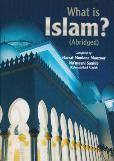What is Islam - eBook
Displaying items by tag: quraish
The Forefathers of Rasulullah (sallallahu 'alaihi wasallam) - Part Five
Haashim (continued)
Haashim was the first to initiate the custom of sending off two trade caravans a year; one to Syria in summer and another to Yemen in winter. According to this unvarying custom, a caravan would set out in every season of the year. These caravans would travel in winter across desolate swathes of land, at times at times through the desert and at times crossing the sea, until they would arrive at Yemen and even further, at Ethiopia.
Najaashi, the emperor of Ethiopia, was exceedingly hospitable towards Haashim and would present many gifts to him. In summer, the caravans would travel to Syria (including Jordan and Lebanon), Gaza and Ankara (which was then the capital of Rome). Heraclius, the Byzantine emperor, would also approach Haashim with utmost respect and would often present gifts to him.
The Forefathers of Rasulullah (sallallahu ‘alaihi wasallam) - Part Two
Ilyaas
His name conformed to the name of the Nabi of Allah Ta‘ala, Hazrat Ilyaas (‘alaihis salaam).
The Sunnah (tradition) of herding the Hadi (sacrificial) animals towards Baytullah (in Makkah) was commenced by Ilyaas bin Mudhar. It has been reported that Ilyaas bin Mudhar would often hear the Talbiyah of Haj being recited by Rasulullah (sallallahu ‘alaihi wasallam) from his own spine.
It has also been narrated that Rasulullah (sallallahu ‘alaihi wasallam) said, “Do not speak ill of Ilyaas as he was a Muslim.”
Mudrikah
Most Ulama are of the opinion that Mudrikah’s name was ‘Amr. The name “Mudrikah” is derived from the word “Idraak” which means “achievement”. He was awarded the title of Mudrikah (the achiever) as he had excelled and attained success in virtually every department of his life.
Hazrat Bilaal (radhiyallahu 'anhu) - Part Two
Du‘aa for the Guidance of Quraish:
Hazrat ‘Urwah bin Zubair (rahimahullah) narrates that a woman of the Banu Najjaar clan (radhiyallahu ‘anha) said, “My house was one of the highest houses around the Musjid (i.e. Musjidun Nabawi (sallallahu ‘alaihi wasallam). Hadhrat Bilaal (radhiyallahu ‘anhu) would call out the azaan of Fajr from the top of my house. He would arrive at the time of Sehri and sit on the roof, looking at the horizon and waiting for the time of Fajr to set in. When he would see the time set in, he would stretch (due to sitting for a long time, waiting to see the time of Fajr set in) and make the following du‘aa: ‘O Allah, I praise You (for allowing me to call out the azaan) and I seek Your assistance and beseech You to guide the Quraish (i.e. the family of Rasulullah (sallallahu 'alaihi wasallam) who had not yet embraced Islam) to Islam so that they may uphold and establish Your Deen (in the world).’” The woman further said, “He would then call out the azaan. I take a qasm by the name of Allah Ta‘ala, I cannot remember him leaving out this du‘aa for even a single day (i.e. his du‘aa for the Quraish before calling out the azaan).”
(Abu Dawood #519)
Footsteps in Jannah:
Hazrat Abu Hurairah (radhiyallahu ‘anhu) narrates that Nabi (sallallahu ‘alaihi wasallam) once asked Hazrat Bilaal (radhiyallahu ‘anhu) at the time of fajr salaah, “O Bilaal (radhiyallahu ‘anhu)! After embracing Islam, which action do you hope will greatly benefit you from the actions you carry out? Verily I heard your footsteps before me in Jannah (in a dream) last night.” Hazrat Bilaal (radhiyallahu ‘anhu) replied, “The action I carry out, which I hope will greatly benefit me, is that whenever I make wudhu, at any time of the day or night, I perform salaah after making wudhu (I perform the salaah of Tahiyyatul Wudhu).”
(Muslim #2458)
The honor awarded to Hazrat Bilaal (radhiyallahu ‘anhu) on account of this action (tahiyyatul wudhu) was the honor of walking before Nabi (sallallahu ‘alaihi wasallam) in Jannah, as a khaadim (servant) walks in front of his master in order to serve him.







